Auugh Concrete Dust All Over My Organic Veggie Garden
aubade
14 years ago
Featured Answer
Sort by:Oldest
Comments (19)
justaguy2
14 years agoaubade
14 years agoRelated Discussions
Bugs hanging around my veggie garden - bad or OK?
Comments (11)The green iridescent bug - with a pointed back - may be a lacewing. It's larvae - the ant lion eats ants, and it should be encouraged. Planting things that attract "good" bugs is a plus. Right now, I have broccoli that is flowering (bolting) and is covered with bees. In turn, newly planted things like peppers, tomatoes are flowering and hopefully, the bees will pollinate these. Also, coriander/cilantro is also flowering - and attracting wasps that are also beneficial. Many birds will eat ants - encourage also. We also have lizards that eat their share as well - thank heaven, because this area has lots and lots of ants - which in and of themselves aren't bad - but their cows - the aphids need to be controlled - they will kill young plants by sucking juices. Bejay...See MoreRoundup got sprayed on my organic garden.. need advice
Comments (54)janice, this is an old thread, and you may well find some good info on it, but since you need help fast I'd suggest you start a brand new thread and post your photos and your text above on it. That will get people's attention and hopefully get you some help fast. For the dog I'd suggest calling your vet asap. So sorry this has happened! And I hope that you'll get some good answers soon from folks who know about these things....See MoreOrganic Raised Beds for Veggie Growing
Comments (4)Emily, you should watch Craigslist and freecycle for free materials you can use for sides. Although you can just make raised mounds without sides, that doesn't work well for me for a variety of reasons. Read on and see if they might apply to you. 1) My land is on a very slight slope, and it rains a lot sometimes, so eventually soil wants to run downhill into the neighbor's yard. The sides keep my soil here. 2) I have enthusiastic weeds such as quack grass and creeping charlie by my gardens, and the sides make it a little harder for them to get into my gardens. 3) I use all free ingredients in my lasagna raised beds, and the old produce (such as peaches, apples, limes, and other round fruit) would roll away while I am piling up the layers of stuff. The leaves would also be more prone to blow away before I get the next layer on top of them. 4) Creating tall lasagna beds is easier than double or even single digging, at least with the kind of vegetation around my house. Back to craigslist and freecycle --> Watch for people giving away boards, concrete blocks, bricks, plastic children's pools, etc. We build most of our raised beds out of old lumber. The first two were from random old lumber, one bed is actually an old waterbed frame I saw in a friend's burn pile, another is from machinery crating from another friend's place of business, another with boards my brother removed from around his former residence's play equipment. One is made of concrete bricks I got on freecycle. Then I have 3 of those flexible children's pools, I put holes around the side about an inch from the bottom for drainage. One was from freecycle, the other two I found in the trash. In summary, be creative and FIND some materials, I can assure you they are out there. U.S. citizens are the most wasteful people in the world, use that to your advantage. Then fill the beds with leaves, old produce, manure, used coffee grounds, grass clippings, whatever you can come up with, again for free. Best darn gardens in the world. Marcia...See MoreVeggie garden....starting over in Tampa FL
Comments (11)Getting on the soap box for a moment... Cypress trees are too valuable to shred into mulch. It sells, so companies make it available. Please don't use it anywhere in your yard. More info from the Suncoast Native Plant Society is available from the link below. In a veggie garden, if you turn over your soil (I don't) your mulch only needs to last a growing season or two and then gets turn under to help build your soil. Wood and bark mulches are too heavy and last too long to be very useful. They also will compete with your plants for nitrogen if turned under. If you are using them keep them exposed to air so they can use a little atmospheric nitrogen to help break down. Better ideas are leaves, coastal hay (it's seedless), compost (you'll get weeds, but they'll be easy to pull), or any other vegetative waste. Or once your plants are established, grow a complementary green manure that will suppress the weeds and maybe fix a little nitrogen, and turn under at the end of the season to help grow your soil. Check with your local County Extension agent for some ideas. There is almost always an organic remedy for your problems. Though they work more slowly, if you keep poison out of your garden, you'll probably have more "natural helpers" to take care of your pests when they appear. And you won't be poisoning your family and the earth. Happy growing, Michael Here is a link that might be useful: Mulch alternatives...See Morerockguy
14 years agoaubade
14 years agorhizo_1 (North AL) zone 7
14 years agoaubade
14 years agomacbirch
14 years agoKimmsr
14 years agoaubade
14 years agojean001
14 years agomaifleur01
14 years agomacbirch
14 years agoaubade
14 years agofespo
14 years agoP POD
14 years agoMichael Nittolo
6 years agofloral_uk z.8/9 SW UK
6 years agokmpj
2 years ago
Related Stories
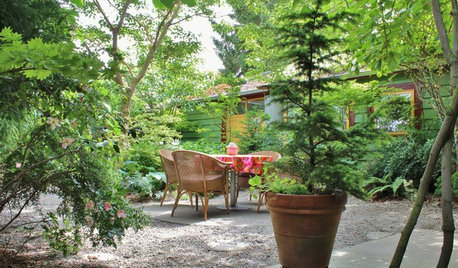
INSPIRING GARDENSFrom Concrete Lot to Gracious Organic Garden in Seattle
Plants, pests and even weeds have a place in this landscape, which offers an edible bounty and a feast for the eyes
Full Story
FARM YOUR YARDHow to Build a Raised Bed for Your Veggies and Plants
Whether you’re farming your parking strip or beautifying your backyard, a planting box you make yourself can come in mighty handy
Full Story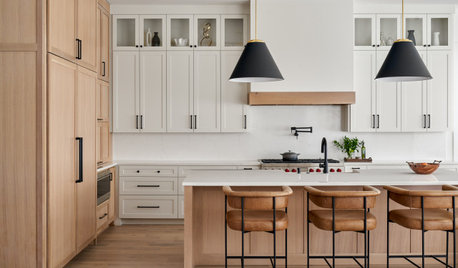
KITCHEN DESIGNStash It All: Know the 3 Zones of Kitchen Storage
Organize storage space around your kitchen’s main activities for easier cooking and flow
Full Story
EDIBLE GARDENSHow to Grow Your Own Sweet Summer Crops
This guide will help any gardener get started on growing the freshest warm-season veggies and berries for summer
Full Story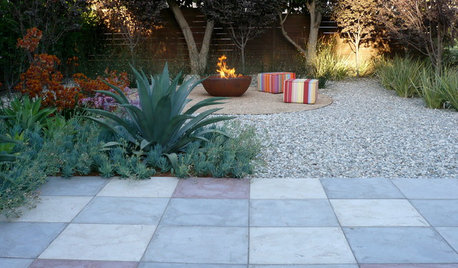
MATERIALSPrecast Concrete Pavers Make a Versatile Surface in the Garden
You can use concrete pavers in a variety of shapes and colors for your patio, walkway, driveway and more
Full Story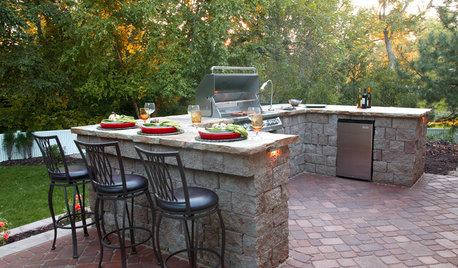
MOST POPULAR13 Upgrades to Make Over Your Outdoor Grill Area
Kick back on your patio or deck with a grill that focuses on fun as much as function
Full Story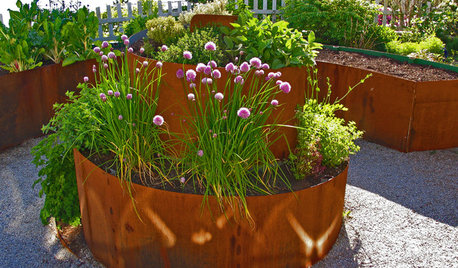
URBAN GARDENSContainers Make Growing Edibles a Cinch
If life hands you a lack of land, grow lemons — with a few basics, you can proudly reap the fruits, veggies and herbs of your labor
Full Story
KITCHEN DESIGNNew This Week: Moody Kitchens to Make You Rethink All-White
Not into the all-white fascination? Look to these kitchens for a glimpse of the dark side
Full Story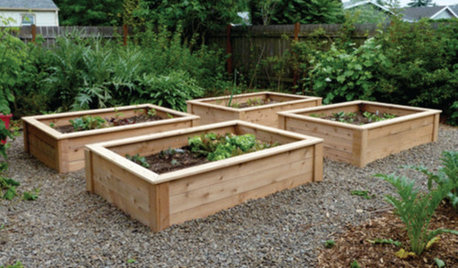
PRODUCT PICKSGuest Picks: Rustic Garden Refinements
Boost garden style while growing veggies and flowers with weathered wood, raw-looking metal and other natural materials
Full Story
GREEN BUILDINGConsidering Concrete Floors? 3 Green-Minded Questions to Ask
Learn what’s in your concrete and about sustainability to make a healthy choice for your home and the earth
Full Story



Dan _Staley (5b Sunset 2B AHS 7)